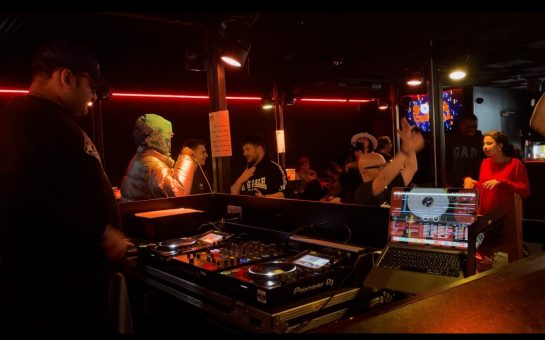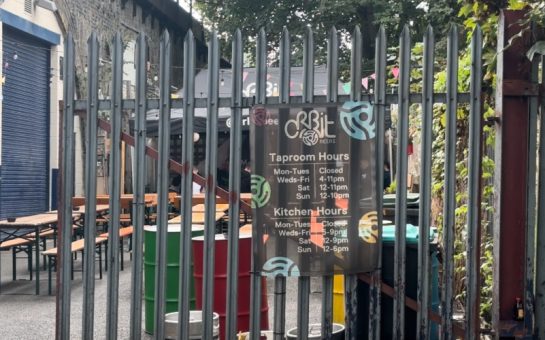London’s first combined welfare and food club was launched in New Addington in southeast Croydon on Friday.
Based in the Family Centre in the Fairfield area, former JLS member JB Gill and mayor of Croydon Toni Letts cut the ribbon on the Food Stop, which will provide families and people receiving universal credit with £20 worth of fresh food each week for just £3.50.
The scheme will address the consequences of government austerity, cuts to public services and welfare, and the imposition of the controversial universal credit scheme, which have led to rising poverty levels.
Julia Weller, chief executive officer from the Family Centre, feels the scheme is a collaborative effort between different groups, including the Fnaily Centre, Croydin Council and the FareShare charity, which sources and delivers the food.
“We couldn’t have done any of this without everyone’s input, from the council and FareShare to local residents,” she said.
Though food is a key part of the project, Rachel Ledwith, London Development Manager for FareShare, explained that it is not a food bank and offers a different service.
“Whilst food banks unfortunately do exist and are increasing in number across the UK, they address the immediate need of food hunger, but they don’t necessarily address why is someone in that situation,” she said.
Instead, those collecting food at the Food Stop will sign up to membership of the council’s Gateway service, so that discounted groceries will be provided alongside support with housing, benefits, English classes, cooking and nutritional advice, and help with training and employability.
Working in partnership with the Family Centre and Croydon Council, FareShare is a national charity which sources and delivers surplus food to the Food Stop, in this case with Tesco in Elmers End donating surplus food.
“The ethos within FareShare is to squeeze as much social impact out of each kilogramme of food as possible,” Ledwith said, with food seen as an important way to create a friendly and social environment for wider issues to be discussed.
Social impact is much needed here, with Labour councillor Simon Hall explaining that the area is the most deprived in the borough and one of the ten percent most deprived wards in England, with the implementation of universal credit having a horrendous effect on families.
“The way it’s calculated, the delays to get it and all the sanctioning. It really does put families in crisis,” Cllr Hall said.
Despite the deepening social and economic challenges faced by the residents of this isolated neighbourhood on the very fringes of London, this is a community which seems strong and proud.
This is tight-knit community which has been tested and strengthened not only be the geographical isolation of the area, but also by the tragedy of the tram crash in 2016 which killed several local residents.
At times it was difficult to move in the Family Centre, with the main hall packed with families enjoying face painting, crafts, curry from the community kitchen, or playing on the bouncy castle outside.
Among those inside the centre was Jamaica-born Croydon-resident Nadia McInnis, founder of Gifted Enterprise, a community interest company that works to teach young people business and life skills.
She explained that the murder of her two brothers led her set up her company to help young people to channel their energy in a positive way.
“We help young people to use their natural gifts and talents to start a business, or to just do something extraordinary with it, instead of using their energies to commit crime or using all that talent to design something that will destroy the community,” she said.
While this tree-enwreathed corner of Croydon feels removed from the bustle of inner-city London, its social problems and poverty will be familiar to communities throughout Britain.
The progress of the Food Stop, and its holistic approach to putting food in bellies, knowledge in minds and hope in hearts, could have lessons for other communities struggling to deal with austerity.




